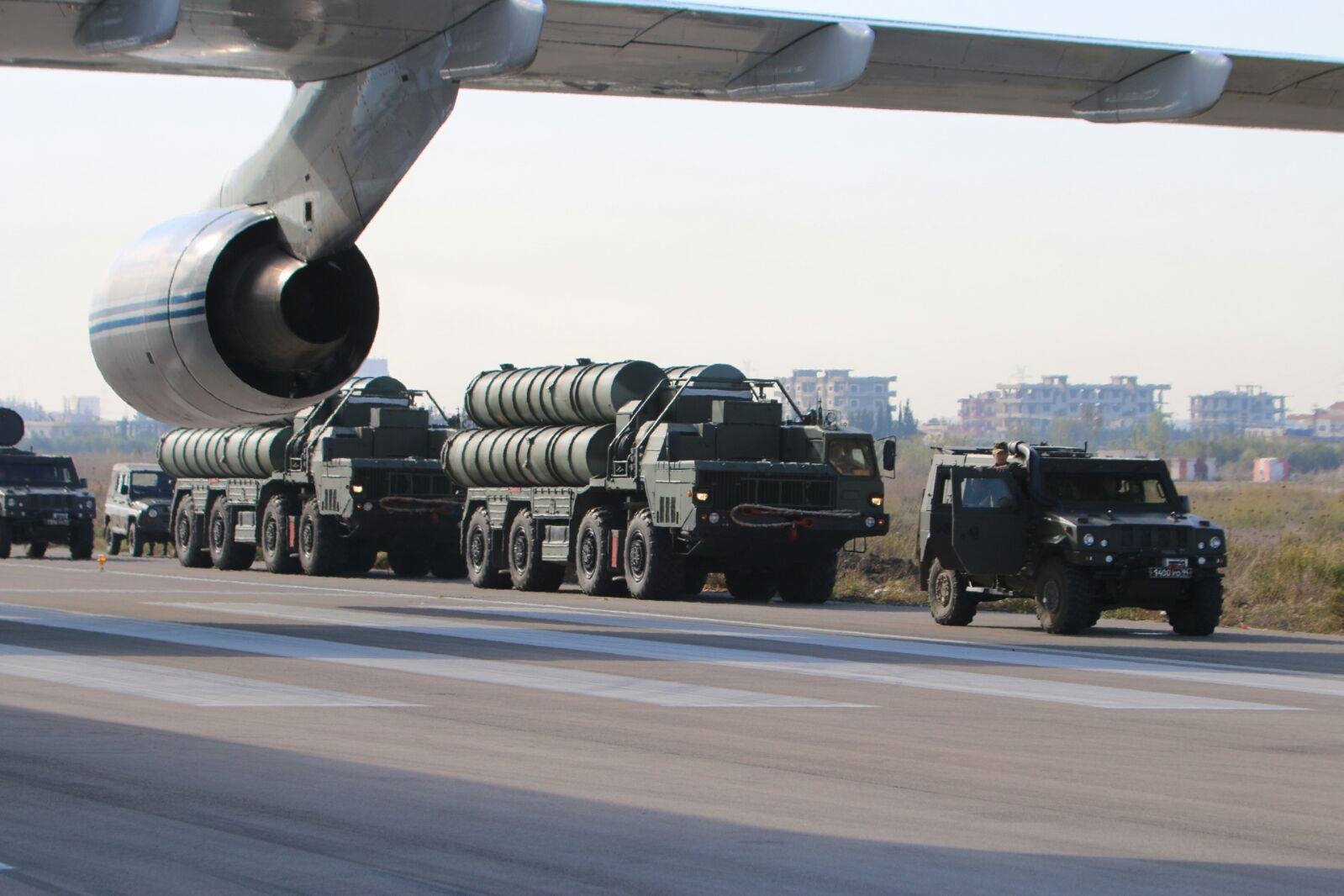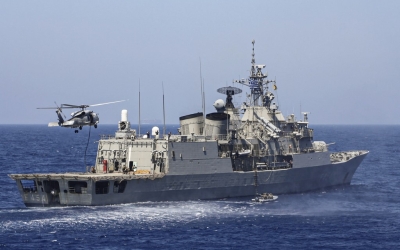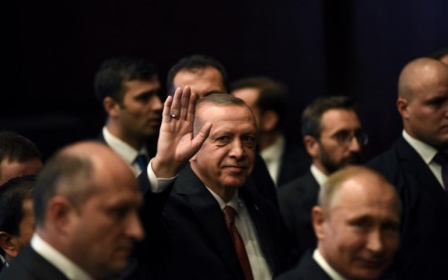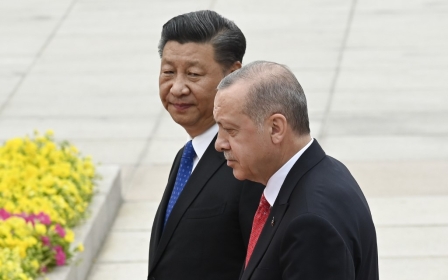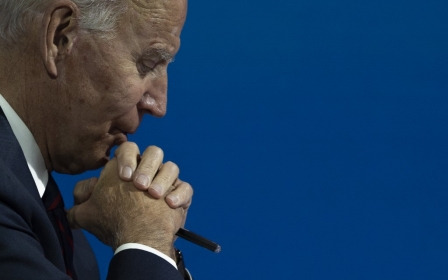Turkey-US relations: A rocky road ahead
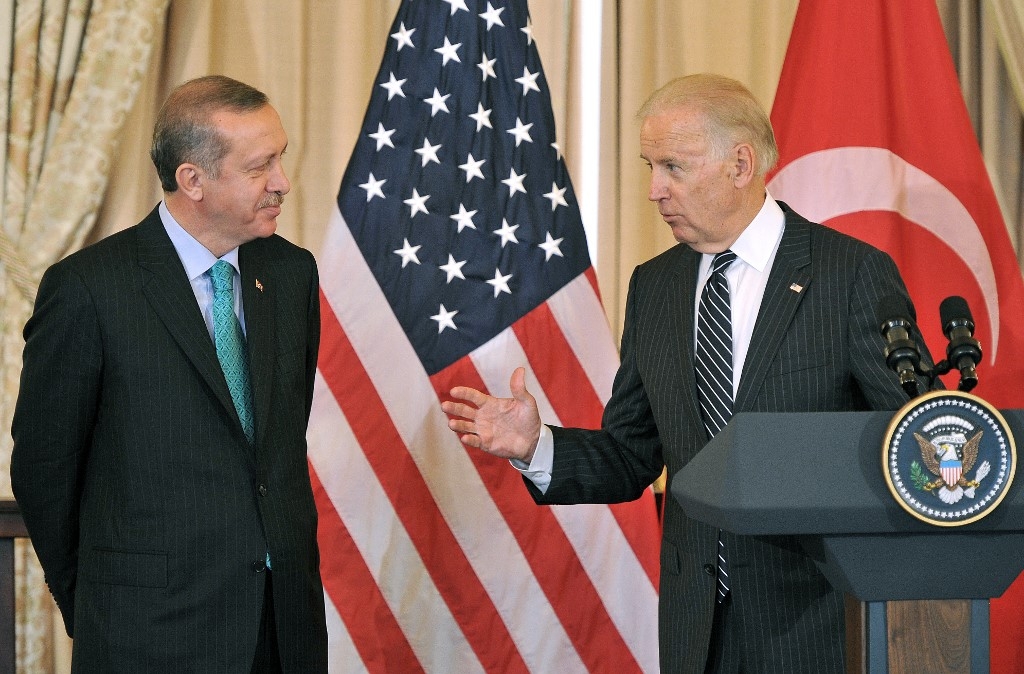
As a great power competition looms, the health of Turkish-US relations will be decided more by Ankara’s ties with Russia and China than by developments in the Middle East.
Conscious of their inferior position in the geopolitical and security realm, Russia and China are telling US partners that they don’t have to choose between Moscow, Beijing and Washington - instead, they can work with all sides.
In contrast, the US, with its upper hand, is demanding that treaty allies such as Turkey make a choice - essentially pushing its partners to take a side. But Turkey clearly believes its own interests are better served through a balancing act among different centres of power.
From the US perspective, this purchase manifests Turkey's new geopolitical identity and realignment, away from the West and closer to Russia
During the Cold War superpower competition, Turkey was in the western camp, largely due to its threat perception stemming from the Soviet Union’s geopolitical calculations. According to the official historiography, in 1945, the Soviets demanded the Turkish provinces of Kars and Ardahan, along with special rights in the management of the Turkish Straits.
Even though the veracity of this account has been contested, the notion became a key driver of Turkish foreign policy during the Cold War, pushing Turkey to seek membership in different western clubs - most importantly, NATO in 1952.
New MEE newsletter: Jerusalem Dispatch
Sign up to get the latest insights and analysis on Israel-Palestine, alongside Turkey Unpacked and other MEE newsletters
Unlike during the Cold War, Turkey does not have a similar threat perception stemming from the current geopolitical situation. Instead, it sees more opportunities. But as great power competition gains steam, countries such as Turkey will likely find themselves increasingly facing unpalatable binary choices, each with costs and consequences.
System-level developments in international affairs will present the main test for Turkish-US relations in particular, and Turkish-western relations more broadly.
Once the US partnership with the Syrian Kurds is set aside, the Biden administration’s emerging Middle East policy is not inimical to Turkish interests. US President Joe Biden’s more critical stance on Saudi Arabia and Egypt, as well as his plan to reverse the Trump regime’s maximum-pressure policy against Iran, line up with Turkish interests. Still, Turkey will likely support efforts to curb Iran’s regional influence.
Five issues are currently testing Turkish-US relations: Turkey’s purchase of Russian S-400 missile systems and the ensuing US sanctions on Turkey; the Syrian Kurds; the Eastern Mediterranean crisis; the court case against Turkey’s state-owned Halkbank related to US sanctions on Iran; and Biden’s propensity to speak on domestic developments and human rights issues in Turkey.
S-400 missile crisis
Of these five items, the S-400 crisis overshadows the rest. The purchase underpins increasingly close relations between Russia and Turkey, deepening the turbulence in Turkish-US relations. From the US perspective, this purchase manifests Turkey’s new geopolitical identity and realignment, away from the West and closer to Russia.
Before leaving office, former US President Donald Trump imposed sanctions on Turkey for purchasing the Russian-made missile systems, targeting Turkey’s top defence procurement and development body. On a slightly positive note, Ankara might have thought that it is better that Trump, and not Biden, imposed the sanctions; had this been one of the latter’s first moves, it would have poisoned relations from the outset of Biden’s term, which are already likely to be fraught with disputes.
Yet, these sanctions are just the latest major irritant in relations. For Turkey, removing these sanctions and preventing the imposition of new ones will top the bilateral agenda. Turkey’s defence minister has already floated the “Greek model” as a way to solve the S-400 crisis, referencing Greece’s stationing of Russian-made S-300s in Crete and using them in a very limited way.
The US, however, maintains that for any sanctions relief to take place, Turkey must completely reverse course on the S-400 issue, which Turkey is unlikely to do anytime soon. If Ankara were to satisfy the US on this point, it would surely face more troubles in its relations with Russia. As such, this issue is poised to fuel a long-lasting crisis in Turkish-US relations.
Energy exploration
On the Eastern Mediterranean file, Turkey’s deepening economic ills, coupled with the prospective trans-Atlantic convergence between the EU and the Biden administration, appear to have motivated Turkey to de-escalate. The immediate goal is to avoid possible EU sanctions at the upcoming European Council meeting in March and a crisis with the Biden administration early on.
Turkey has not recently sent new survey ships into contested waters, and Turkey and Greece last month started a fresh round of exploratory talks after a five-year hiatus. These talks are important for shifting the focus of the dispute from military posturing to negotiations, but the situation remains tense and could easily re-escalate - something that European diplomacy in particular should work vigorously to prevent.
But what does de-escalation mean at this stage? The immediate elements include a moratorium on energy exploration in contested waters, and talks between the two sides. In other words, European diplomacy and mediation should aim first to restart negotiations between Ankara and Athens, which has been partially achieved via the re-initiation of exploratory talks.
Meanwhile, it is crucial that no exploration activities in contested waters occur during this time.
The next question would be: how can de-escalation be made permanent? Firstly, the EU should try to facilitate Turkey’s accession into the East Mediterranean Gas Forum. If this is not possible, the EU should devise a trilateral framework wherein the forum members, the EU and Turkey could explore ways to better manage their disputes.
Secondly, the EU should extend its green energy vision to the Eastern Mediterranean countries. These two steps cannot be achieved anytime soon, if at all - but without them, de-escalation is unlikely to last. Along the same lines, the EU and US should strongly support the diplomatic process in Libya, which will impact the Eastern Mediterranean conflict.
Fuelling acrimony
At the same time, the new US administration’s willingness to speak on democratic regression and human rights violations in Turkey is likely to fuel acrimony between the two capitals.
For Turkey, this emphasis on democracy and human rights partially aims to send a message that the Trump framework, which showed no concern for domestic developments and democratic transgressions, is over. More broadly, it will likely form an integral part of any systemic rivalry with China or Russia.
The list of crises threatening Turkish-US relations is only getting longer. During the Trump era, Turkey was largely shielded from the wrath or punitive actions of US institutions. Under Biden, Turkish President Recep Tayyip Erdogan is unlikely to have the same level of ease in accessing the US presidency.
The future course of Turkish-US relations will primarily be decided by the nature of the competition among world powers
In the new era, there will be more convergence and harmony between Biden and US institutions - and given Ankara’s poor relations with US institutions and Congress, it will likely have a more difficult time. Growing convergence between the US and Europe will further reduce Turkey’s room for manoeuvre.
Of the aforementioned crises, none appears ripe for a resolution. But despite the importance of individual files, the future course of Turkish-US relations will primarily be decided by the nature of the competition among world powers, and by the shape and depth of Turkey’s relations with China and Russia.
The views expressed in this article belong to the author and do not necessarily reflect the editorial policy of Middle East Eye.
Middle East Eye delivers independent and unrivalled coverage and analysis of the Middle East, North Africa and beyond. To learn more about republishing this content and the associated fees, please fill out this form. More about MEE can be found here.



